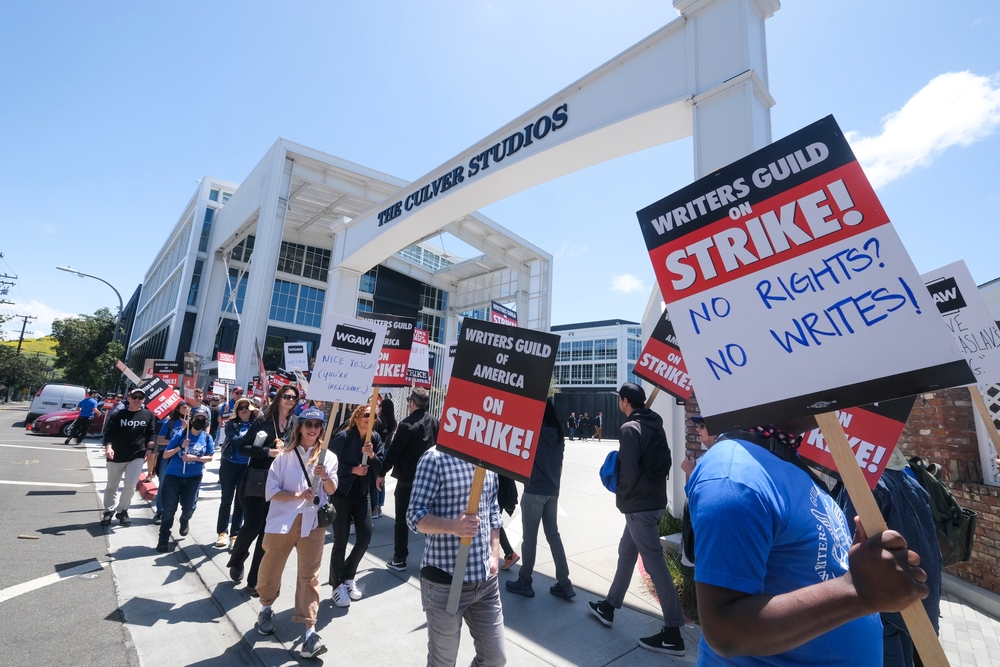Hollywood’s screenwriters have ended their five-month strike following the Writers Guild of America (WGA) leadership’s approval of an agreement with the Alliance of Motion Picture and Television Producers (AMPTP).
The new contract, awaiting ratification by the union members, introduces provisions about AI, favorable streaming show terms, and assurance about writers’ pay.
When the strike erupted earlier this year, 11,500 WGA members voted in favor, highlighting concerns over reduced pay and unstable job conditions in the age of online streaming. Writers also sought more control and protection over AI’s potential to reduce their work pool at the cost of authentic, high-quality writing.
The WGA revealed that writers could return to their work immediately as the ratification vote for the three-year contract takes place.
It’s been a grueling battle, with an agreement only being reached after intensive five-day negotiations between the WGA and a coalition of studios, streaming services, and production companies. Talks reportedly involved several influential industry figures, such as Disney CEO Bob Iger and Netflix co-CEO Ted Sarandos.
However, this wasn’t the only strike in Hollywood – the Screen Actors Guild-American Federation of Radio and Television Artists (SAG-AFTRA) strike remains unresolved.
SAG-AFTRA initiated strike action in July and holds similar insecurities about AI’s potential to copy and replace actors.
Until it’s resolved, the US film and TV industry remains in a state of limbo.
Voting on the agreement commences on October 2nd and is expected to be ratified by a majority vote in favor of the WGA’s propositions.
Was the result favorable for writers?
The WGA is celebrating the forthcoming deal as a victory, stating, “We can say, with great pride, that this deal is exceptional — with meaningful gains and protections for writers in every sector of the membership.”
The agreement clarifies the use of generative AI in the writing process. It states that while writers have the discretion to employ AI when penning scripts, given that they adhere to company policies, production entities cannot mandate writers to utilize AI tools, such as ChatGPT.
This clause aims to protect writers from being marginalized or replaced by AI-driven software.
It’s anticipated that the WGA’s agreement will guide the negotiations of SAG-AFTRA, perhaps leading to an international snowball effect that sees creatives secure assurances for protection from AI – at least in the short term.





